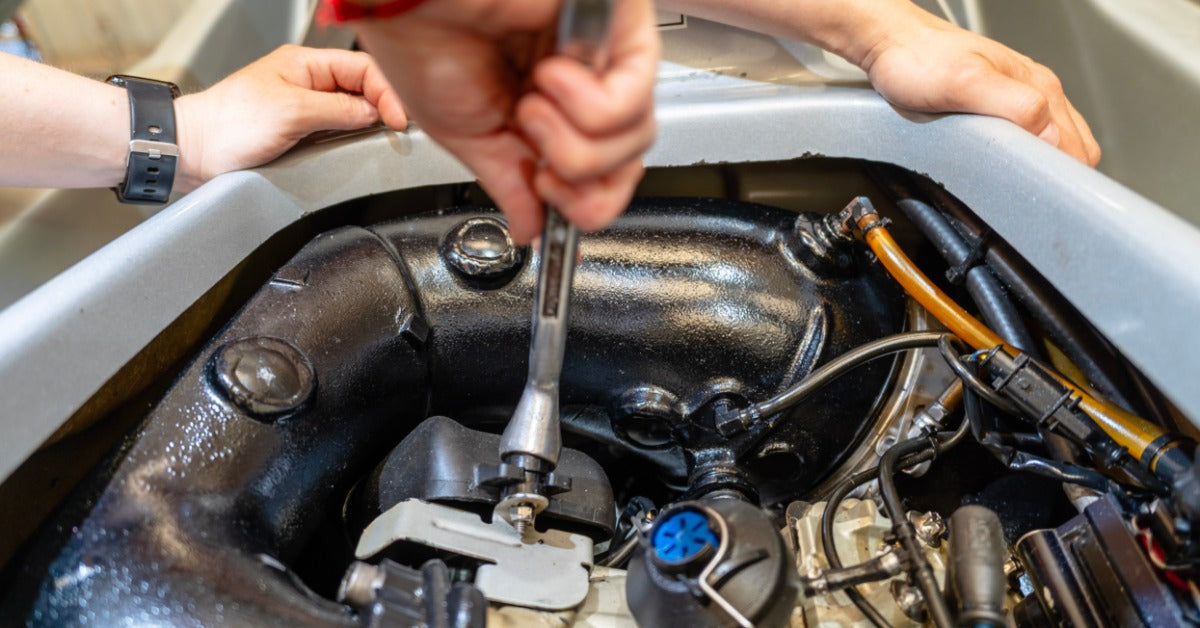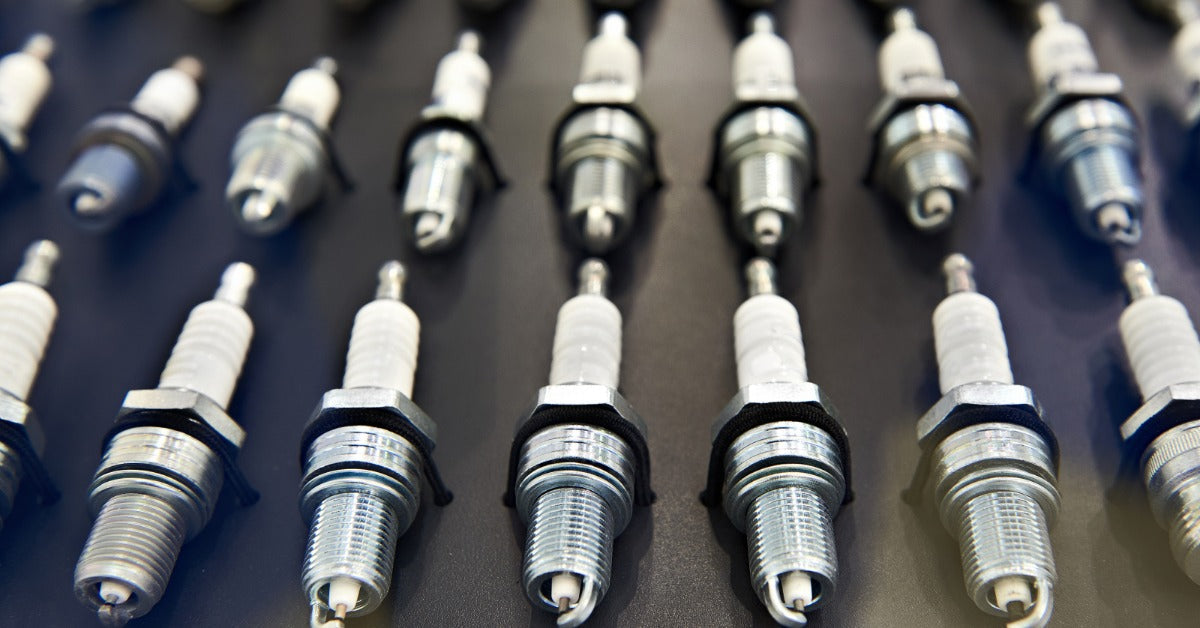
A vehicle’s performance depends heavily on an efficient combustion process. This process, in turn, relies on the condition of engine components like injectors and spark plugs. While many owners turn to fuel additives and injector cleaners to improve their vehicle performance, you might wonder how these products interact with spark plugs. Understanding this relationship is essential to keeping the engine running smoothly.
We’ll explain how fuel additives and injector cleaners affect spark plugs, share practical tips to support your engine, and discuss the importance of using high-quality products.
What Are Fuel Additives and Injector Cleaners?
Fuel additives and injector cleaners are chemical solutions designed to improve the engine’s performance by removing buildup that can hinder the fuel system’s integrity. As you continue to drive, combustion byproducts like carbon, varnishes, and deposits can form in your fuel injectors and intake valves. In turn, the deposits that build up can affect the fuel delivery and air-fuel mixture. These products work to dissolve and clean out the accumulation to restore the engine’s efficiency.
How Spark Plugs Function
Spark plugs serve as the ignition source within a combustion engine. They deliver the spark needed to ignite the air-fuel mixture inside the cylinder, creating the explosion that drives the piston.
For the spark plug to do this effectively, the electrode and insulator tip must remain clean and free from excessive deposits. Even minor contaminants can disrupt the combustion process, leading to misfires, poor fuel economy, or engine knocking.
How To Tell if the Fuel Injector Is Dirty

One noticeable sign of a dirty fuel injector is a decrease in the car’s fuel efficiency. If you’re constantly filling up on gas more than usual, perhaps the injector isn’t delivering fuel effectively.
You might also notice rough idling where the engine feels shaky or uneven while your car is stationary. Trouble starting your car or experiencing a lack of power during acceleration are other potential clues. Additionally, a dirty injector may trigger the check engine light, signaling an imbalance in the fuel-air mixture.
The Benefits of Using Fuel Additives and Injector Cleaners
When used properly, fuel additives and injector cleaners offer several advantages that indirectly enhance the performance of the spark plugs.
Cleaner Fuel System
They remove deposits along the fuel injectors, intake valves, and combustion chamber. This improves the air-fuel mixture, which can lead to cleaner burns and reduce carbon accumulation on spark plugs.
Improved Combustion Efficiency
Cleaner fuel injectors spray fuel more evenly, so it mixes with the air effectively. This allows the spark plug to ignite a more uniform and efficient combustion event.
Reduced Buildup on Spark Plugs
Consistently clean fuel injectors mean fewer unburnt hydrocarbons and carbon deposits in the combustion chamber. With less carbon being deposited, spark plugs remain in better condition for longer.
While it’s perfectly acceptable to use in newer models, some additives may react poorly with modern engines, causing unexpected damage or a reduced lifespan. Incompatible cleaners can also void manufacturer warranties if damage occurs. It’s crucial to check product labels and confirm the cleaner aligns with your engine’s specifications.
Potential Downsides
Overusing Additives
Adding too much cleaner to the fuel tank can lead to overly concentrated chemicals that may leave unwanted residue. This can foul the spark plugs, where excess deposits accumulate on the insulator’s nose and electrode. A fouled plug can cause misfires and performance issues.
Excessive deposits may also reduce the plug’s ability to generate a strong spark. Over time, it can severely strain the engine and potentially cause damage to other components. Always follow the recommended dosage to avoid these problems.
Compatibility Concerns
Not all additives or cleaners work with every type of plug or engine. Using the wrong cleaner can interfere with the engine’s performance because the additives may not mix well with a certain fuel type.
Furthermore, low-quality cleaners might contain harsh elements that expedite wear. Take care of engine plugs for cars by only choosing high-quality cleaners that complement your vehicle’s features.
How To Minimize Damage on Spark Plugs

Check the Manufacturer’s Recommendations
Always use fuel additives and cleaners that your vehicle manufacturer approves of. It’s always a good idea to consult the owner’s manual for more information on which products are compatible with your vehicle’s engine and spark plugs.
Don’t Overdo It
Follow the recommended usage instructions provided on the additive or cleaner packaging. Over-concentration can lead to residue buildup.
Use High-Quality Products
Invest in reputable brands for additives and spark plugs. High-performance plugs like those from E3 Spark Plugs, featuring advanced designs like DiamondFIRE electrodes, are better equipped to handle the conditions created by fuel additives and cleaners.
Perform Routine Maintenance
Regularly inspect your plugs for signs of wear, fouling, or unusual deposits. Replacing damaged components promptly will prevent further engine issues.
Monitor Engine Performance
Watch out for warning signs like misfires, decreased fuel efficiency, or difficulty starting your car. These might indicate fouled spark plugs or improper combustion.
Try to use fuel injector cleaner between 3,000 and 5,000 miles or as specified in the vehicle’s owner manual. For older cars or high-mileage engines, consider more frequent use to prevent carbon buildup.
Always add the cleaner to a nearly empty tank before refueling. This ensures the cleaner mixes and works effectively.
How Do They Affect Spark Plugs?
Long-term use of fuel additives and injector cleaners will generally benefit your spark plugs, as long as these products are used correctly. By keeping your engine’s fuel delivery systems clean and efficient, spark plugs can function closer to their best performance levels, reducing ignition-related problems.
Why Your Choice of Spark Plugs Matters
While fuel additives help clean your fuel system, the right spark plug guarantees your engine efficiently translates combustion into power. Modern spark plugs, such as those produced by E3 Spark Plugs, offer advanced features like edge-to-edge spark discharge and a unique ground electrode design. These innovations enhance combustion and reduce fouling, making them a reliable choice when using fuel additives and cleaners.
Keep Your Engine Running Strong
Understanding how fuel additives and injector cleaners affect spark plugs shows drivers the interconnections of engine components. For smooth rides, prioritize routine maintenance of your fuel system and spark plugs.
To take your engine care to the next level, consider pairing quality additives with premium spark plugs like E3’s DiamondFIRE plugs. They’re specifically engineered to deliver consistent and efficient performance, even when conditions aren’t perfect. Explore our full range to stay on the road with your mind at ease.







